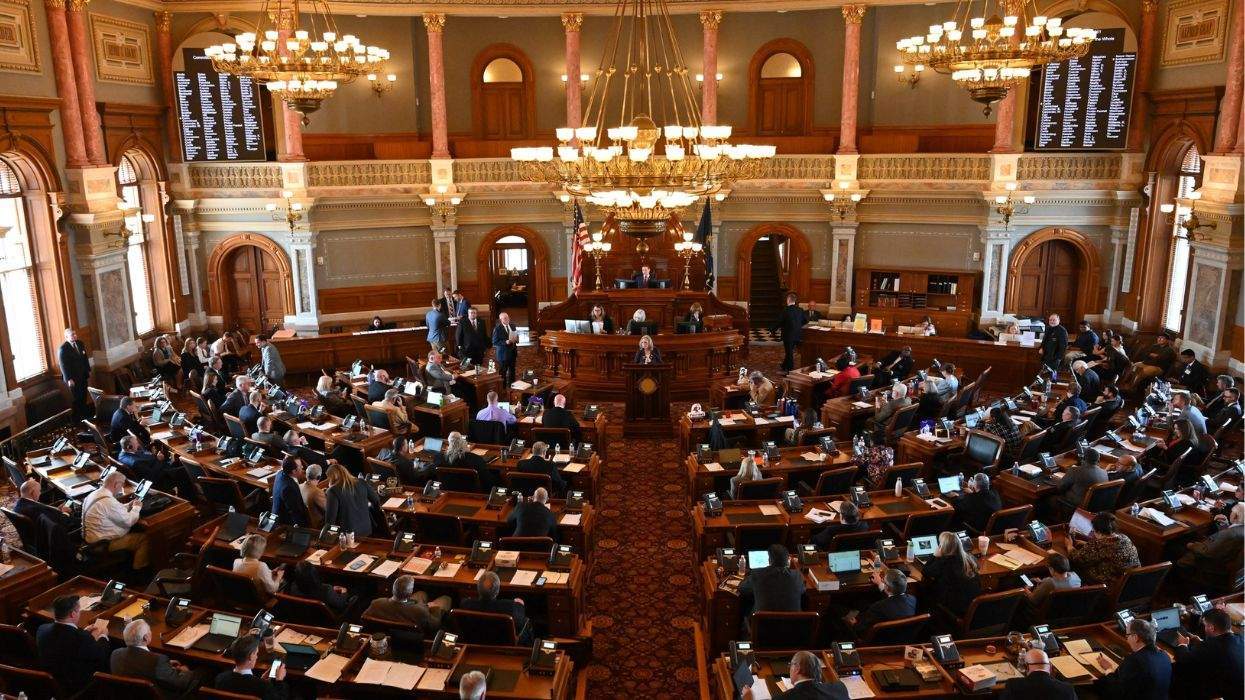The Equality Act, which would ban anti-LGBTQ+ discrimination throughout the nation, was formally reintroduced in the U.S. House of Representatives Thursday.
The act would amend existing civil rights laws, such as the Civil Rights Act of 1964 and the Fair Housing Act of 1968, to ban discrimination based on sexual orientation and gender identity. In addition to employment and housing, it would ban such discrimination in other aspects of life including education, credit, jury service, federal funding, housing, and public accommodations. It would also make clear that the Religious Freedom Restoration Act of 1994 does not provide legal cover for anti-LGBTQ+ discrimination. It is the successor to the Employment Non-Discrimination Act, a narrower piece of legislation that never passed both houses of Congress in the same session.
The Supreme Court's decision last year in Bostock v. Clayton County established that anti-LGBTQ+ employment discrimination is sex discrimination and therefore not allowed under the Civil Rights Act. Since Joe Biden became president, he has promised to implement this decision throughout the federal government, and that started with an announcement from the Department of Housing and Urban Development prohibiting such discrimination in housing. But passage of the Equality Act would make it much harder for a future court decision or president to undo bans on discrimination. Biden has said adoption of the act would be a priority in his first 100 days as president.
Rep. David Cicilline, a Rhode Island Democrat, introduced the bill in the House, and Sen. Jeff Merkley, a Democrat from Oregon, will introduce it in the Senate next week, when that chamber reopens. It is scheduled for a House vote February 25. In 2019, the bill passed the Democratic-controlled House but was blocked from consideration in the Senate by then-Majority Leader Mitch McConnell, a Republican.
"In 2021, every American should be treated with respect and dignity," Cicilline said in a press release. "Yet, in most states, LGBTQ people can be discriminated against because of who they are, or who they love. It is past time for that to change. I'm proud to introduce the Equality Act today, and I look forward to continuing to work with Senator Merkley to get this bill signed into law."
Merkley added, "All of us go to work and school, go home, and go shopping, and none of us should have to keep our families hidden or pretend to be someone we're not to do those things. But in 29 states, Americans can still be evicted, be thrown out of a restaurant, or be denied a loan because of who they are or whom they love. We all love the vision of America as a land of freedom and equality, but are we willing to take the steps to make that vision closer to reality? Let's make 2021 the year the Equality Act crosses the finish line and is signed into law by President Biden."
The act is likely to pass again in the House, which still has a Democratic majority. It may have a tougher time in the Senate, even though the chamber now has Democratic control, with a 50-50 split between the parties, Democrat Chuck Schumer as majority leader, and Vice President Kamala Harris having the power to break ties. While it would take only a simple majority to pass the bill, it would take a vote of 60 senators to overcome a filibuster, that is, end debate on it. Some Democrats would like to get rid of the filibuster, but two Democratic senators, Joe Manchin of West Virginia and Kyrsten Sinema of Arizona, have resisted that move. Manchin's support for the bill overall is in question, as he spoke out against it two years ago, saying more guidance was needed in how schools would treat transgender students.
Now Senate Democrats are trying to persuade some Republicans to support the act. But Republican Sen. Mitt Romney of Utah has already come out against it, contending that it lacks sufficient protections for religious objections. Other senators have raised concerns about the participation of transgender girls and women on female sports teams in schools. It doesn't address sports directly but mandates equal treatment in all educational programs. National Women's Law Center spokesperson Gillian Branstetter, a trans activist, told the Washington Blade the bill's supporters are unlikely to compromise on the sports question.















Charlie Kirk DID say stoning gay people was the 'perfect law' — and these other heinous quotes
These are some of his worst comments about LGBTQ+ people made by Charlie Kirk.